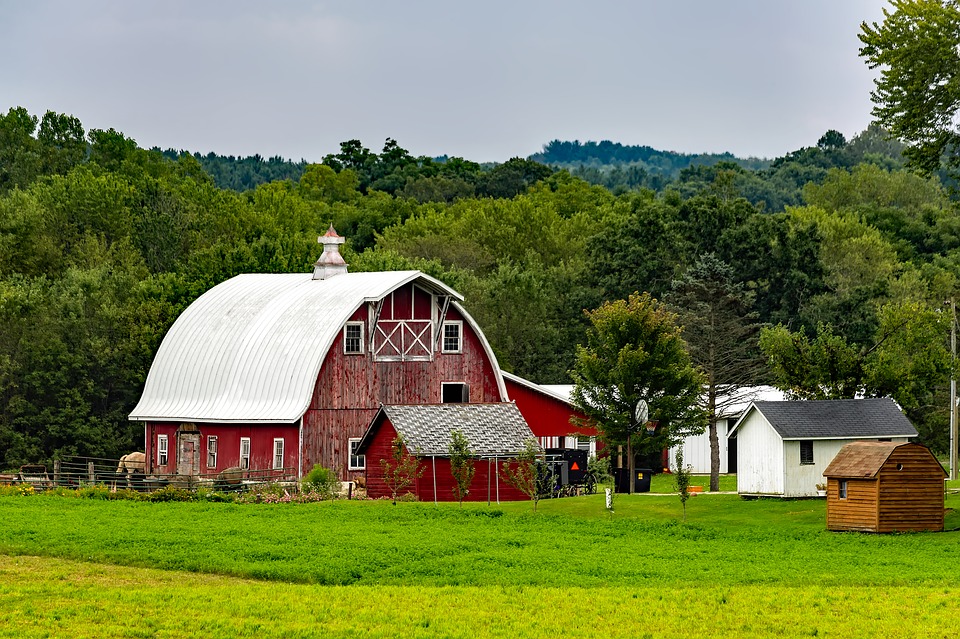Pocan Sees State’s Political Winds Shifting
Trump is losing Wisconsin, Democratic congressman says.
In a wide ranging conversation with reporters in his district office on Wednesday, U.S. Rep. Mark Pocan (D-Madison) pointed to a big drop-off in support for President Donald Trump in the latest Marquette Law School Poll.
One of the big reason’s for Trump’s declining approval rating in the state, Pocan said, is “the stupid, silly, not-well-thought out fight with China around tariffs.”
“Our farmers are really, really being hurt in Wisconsin, specifically,” he added, citing tariffs and the the struggles of rural Wisconsinites as a major contributor to Trump’s plummeting approval rating in Wisconsin–among the largest drop-offs in the states where a majority voted for him.
The Marquette Law School poll released on Wednesday included an open-ended “In Their Own Words” section, in which 203 Wisconsin residents were asked to express, in their own words, what they liked and disliked about Pres. Trump.
Among voters who said they “somewhat approve” of Trump, answers to the question what they disliked about him included a Republican who voted for Trump but said he disliked “Tariffs on anyone other than enemies.” Another Trump voter wrote simply “Tariffs.” “Tweeting, and narcissistic” wrote another Trump voter. Among voters who said they “somewhat disapprove,” an independent who voted for Trump wrote “I’m scared about the tariffs and foreign policy.”
Pocan said he believes that Trump has badly misread Wisconsin, a critical swing state in the 2020 presidential election.
“When you fly between Camp David and Mar-a-Lago, you don’t know what people are feeling in rural parts of Lafayette Co. and Sauk Co. and Iowa Co. and Dane Co.,” he said. “And it’s a very, very different reality.”
In Wisconsin, 700 dairy farms went out of business last year.
The Trump administration’s $16 billion aid package for farmers hurt by trade wars and bad weather is not enough to make up for the uncertainty and hard economic times gripping the rural Midwest, Pocan added. “Clearly, it’s not even close to what they’re losing, and certainly not what you want,” Pocan said. ”If you’re a farmer you want to make money from selling your goods, not from getting assistance from the federal government.”
Plus, the level of aid the government is offering is “just for show,” he said. “When you’re giving someone a penny or two cents on the dollar, that’s not going to keep someone farming.”
“People are starting to worry about a recession because of the tariff wars,” he added.
In his own district, Pocan said, he has seen multi-generation family farmers who are deciding to sell their farms.
“We’ve been fortunate, because we’ve had more family farms than a lot of states,” Pocan said. “But when you lose the level that we’ve been losing … with historically low prices, you throw on some uncertainty on the long-term markets…You have a president who does policy by tweet, and that’s what farmers are afraid of.”
Trump’s unpredictability, his willingness to trigger damaging trade disputes and the fact that he does not appear to understand what farmers are losing “is going to have really big effects, electorally, for him,” Pocan added.
As for the Democratic front runner, Pocan said he was worried about Biden’s appeal to younger voters and the Democratic base.
“Our problem in the 2016 election is a lot of our base didn’t come out,” he said, pointing to a recent poll that showed Biden in the single digits among millennials.
“We need to get those people excited to come out,” Pocan said.
The key to winning Wisconsin, he declared, is “showing up” (something Hillary Clinton failed to do in the 2016 election). Democratic Party chair Tom Perez “does not enjoy my joke that the reason we’re having the convention in Wisconsin is to make sure the candidate shows up this time,” Pocan said.
When national media began reporting that the whole election might come down to Wisconsin, “I had a lot of colleagues coming up to me saying, ‘What do you guys need? Whatever you want!’” Pocan added, laughing.
All joking aside, he said, “It does go to taking Wisconsin seriously as a swing state, showing up and talking to voters seriously about the issues they care about.”
Reprinted with permission of Wisconsin Examiner.






















